Location
Our Washington Location
Our inpatient facility is located in Washington, and will serve Washington state. It will provide a safe & therapeutic environment for both our staff and patients.
- Edmonds
7416 212th St SW,
Edmonds, WA 98026
Attention deficit hyperactivity disorder (ADHD) affects more than six million people in the U.S. For those who need the medications prescribed to treat these conditions, drugs like Strattera allow them to function normally in their everyday lives. Without them, they wouldn’t be able to perform well at their jobs, and many children would continue to struggle in school. However, many people don’t realize that drugs like Strattera can become highly addictive.
Strattera abuse is a severe problem in the U.S., and because this is a prescription drug, many people don’t even realize that forming a Strattera addiction is possible. If you or a loved one struggle with Strattera addiction, there is no better time to get help. Call Northpoint Washington at 888.450.2153 today to get started.
Strattera, a brand of atomoxetine, is a medication used to treat ADHD and narcolepsy. It works directly with norepinephrine in the brain, which can help with focus, impulsivity, and other symptoms of ADHD. It can also help people with narcolepsy by increasing wakefulness and reducing the number of daytime naps.
It is available in capsule form and is taken orally. The capsules can be taken with or without food, but they should be swallowed whole. It’s important to follow the prescription given by a doctor, as Strattera can be dangerous if not used correctly.
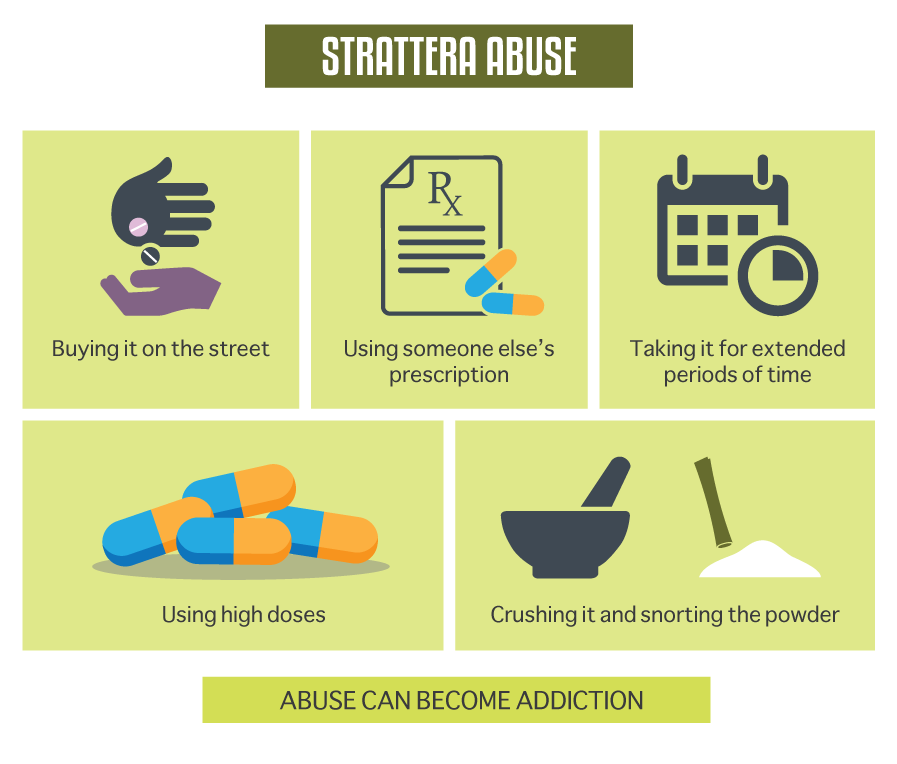

Strattera abuse differs from Strattera addiction, although people tend to confuse the two. Strattera abuse refers to using Strattera against a doctor’s orders, including:
While abusing Strattera does not imply an addiction, it is often the first step in the addiction cycle. Strattera abusers can quickly build a tolerance to the drug, forcing them to seek increasingly high doses.
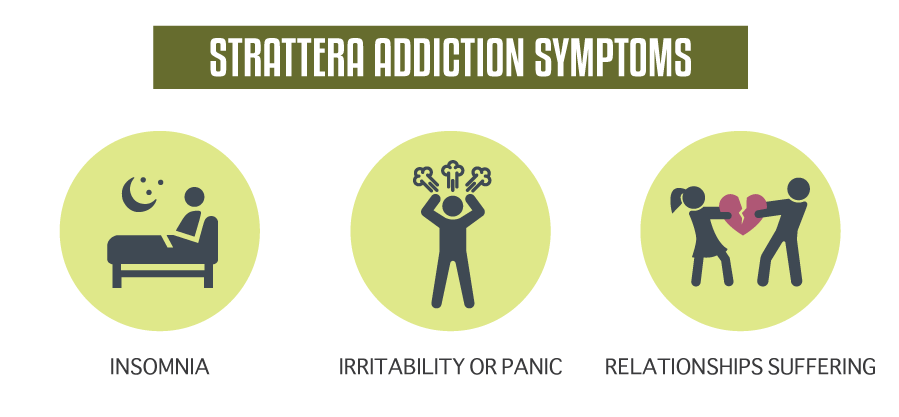
Quite often, Strattera addicts don’t realize that they’ve become addicted to the medication. Some of the telltale signs of a Strattera addiction include:
Recognizing even one of these Strattera addiction signs may indicate a problem. Getting help right away can be essential in breaking the cycle of addiction.
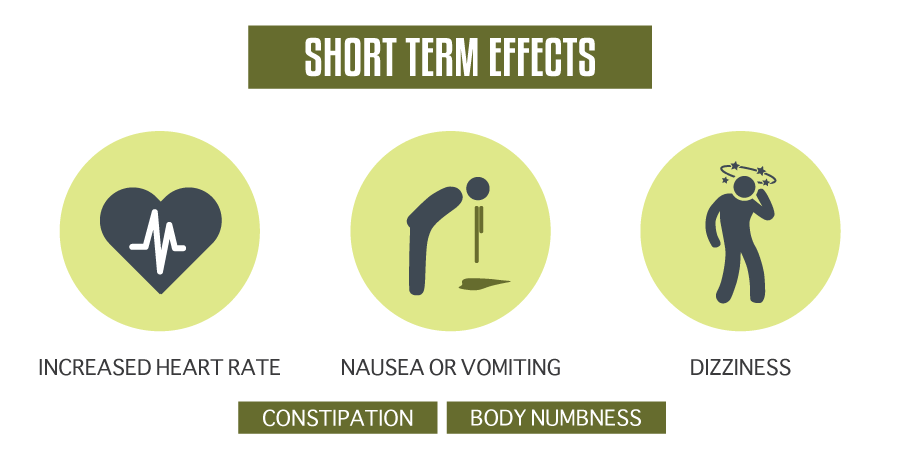
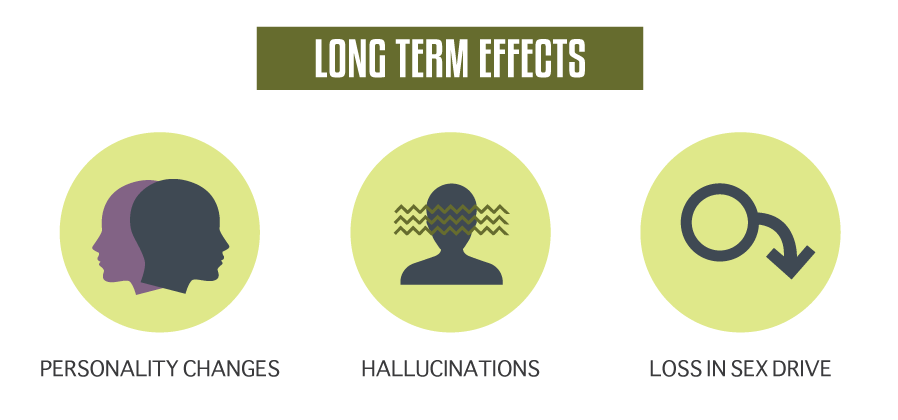
Since Strattera is a mental health medication, people who abuse it often have a dual diagnosis. This means that they suffer from both a substance abuse disorder and a mental health disorder. The most common mental health disorder that co-occurs with Strattera addiction is ADHD.
Treating a dual diagnosis can be difficult, but it’s important to treat both disorders simultaneously. At Northpoint Washington, we specialize in dual diagnosis treatment. Our expert staff will create a custom treatment plan that addresses your unique needs.
Dual diagnosis treatment can help:
The first step of any dual diagnosis treatment is to work through the withdrawal symptoms that occur after you stop taking Strattera. These symptoms can often lead to relapse since they can be intense and uncomfortable.
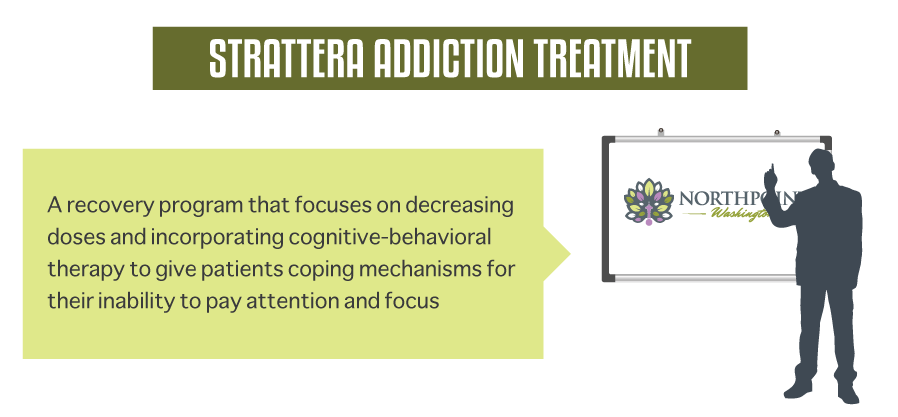
Trying to stop taking Strattera without professional support can be intimidating and dangerous. Doing so will most likely lead to withdrawal symptoms that you’re not prepared to handle on your own. These might include:
Most people who try to stop taking Strattera on their own end up relapsing, and this can lead to an addiction cycle that’s impossible to break on your own.
Choosing one of the best Strattera addiction treatment programs in Washington State will allow you to access the most appropriate treatment level for your addiction.
Taking the first step to recovery can be the hardest, but it’s also the most important. Northpoint Washington offers a variety of treatment options for those struggling with Strattera addiction, including:
Your success in sobriety is our priority. Staying in a judgment-free, supportive environment can be the change you need to reach your recovery goals. Get started on your path to a healthier future, call 888.450.2153 today.

Our admissions coordinators are here to help you get started with treatment the right way. They'll verify your health insurance, help set up travel arrangements, and make sure your transition into treatment is smooth and hassle-free.
888.450.2153Contact Us